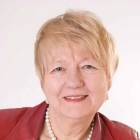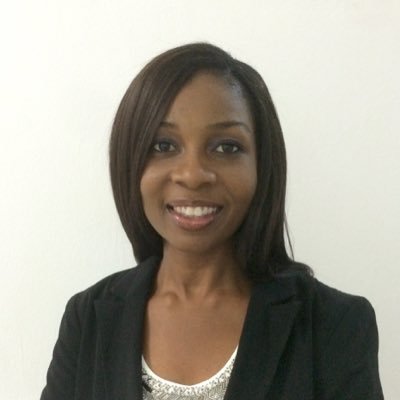The future of health in Africa
Date
23 January 2018
Time
18:30 to 20:00
Location
Graduate Institute - Geneva
Attendance
This event has now passed. To browse our upcoming events click here.
Sub-Saharan African countries have sustained unprecedented transformation and change in the last decade, including constant economic growth, a growing middle class, increased political stability, and a skilled workforce. Recognition must be given to these advances, even though challenges remain: Africa’s population is expected to constitute 25% of the global population in 2050 (16% in 2017) with a sharp increase in the youth population under 25. This will also put health systems increasingly under pressure.
This event brings together emerging leaders from Ghana and Nigeria to discuss the achievements and challenges across the continent by raising some of the following questions: What are the most promising approaches for efficient healthcare systems in Africa? What are the challenges to achieve Universal Health Coverage (UHC)? How can health policy-making skills be strengthened in the region to meet the needs of the future? What are politically and economically feasible solutions to improve health security and sustain healthier societies? How can investment in education for health be fostered and African leaders supported so that they can effectively shape and tailor public health policies?
These questions and more are precisely what the Global Health Centre at the Graduate Institute, the Centre on Global Health Security at Chatham House, and the IFPMA had in mind to invite you to discuss.
Photos by GHC / S. Deshapriya
Program
Ilona Kickbusch, Director, Global Health Centre, the Graduate Institute
David Heymann, Professor of Infectious Disease Epidemiology, London School of Hygiene and Tropical Medicine; Head of the Centre on Global Health Security at Chatham House; Chairman of Public Health England; Mentor at the Chatham House West African Global Health Leaders Fellowship
Thomas Cueni, Director General, International Federation of Pharmaceutical Manufacturers and Associations (IFPMA)
Matshidiso Moeti, Regional Director for Africa, World Health Organization
Ama Pokuaa Fenny, Research Fellow, Institute of Statistical, Social and Economics Research, University of Ghana; West Africa Global Health Leaders Fellow, Centre on Global Health Security, Ghana
Ritgak Tilley-Gyado, Consultant Health Specialist, World Bank; West Africa Global Health Leaders Fellow, Centre on Global Health Security, Nigeria
Ilona Kickbusch
David Heymann
Thomas Cueni
Speakers

Ilona Kickbusch is the Director of the Global Health Centre and adjunct professor at the Graduate Institute of International and Development Studies in Geneva. She has been deeply involved in the development of the Health 2020 European health policy framework. She was a member of the independent Ebola interim assessment panel of the WHO. She has recently been awarded the Cross of the Order of Merit of the Federal Republic of Germany (Bundesverdienstkreuz) in recognition of her invaluable contributions to innovation in governance for global health and global health diplomacy. She is a senior advisor to the Regional Directors of the WHO Regional Offices for Europe and the Eastern Mediterranean and has advised many countries on their global health strategies.
In Switzerland she serves on the executive board of the Careum Foundation and on the expert panel advising the Federal Councillor responsible for health. She has contributed to innovation in health in many ways throughout her career and has a strong commitment to the empowerment of women. She has worked with the WHO at various levels and in academia as professor at Yale University. She has published widely and has received many prizes for her work.
Her key areas of work relate to Global Health Governance, Health Security, Public Health, Health Promotion, Health Literacy and Health in All Policies. Details and updates can be found on her Website: www.ilonakickbusch.com and on wikipedia. You can follow her on twitter @IlonaKickbusch

Thomas B. Cueni is Director General of IFPMA since 1 February 2017. Prior to joining IFPMA he was Secretary General of Interpharma, the association of pharmaceutical research companies in Switzerland. For many years Thomas Cueni has been involved in the work of the European Federation of Pharmaceutical Industries and Associations, EFPIA, where he most recently served as Vice-Chair of the European Markets Committee and association representative on the Board. He represented the industry on the EU High Level Pharmaceutical Forum, was Chairman of EFPIA’s Economic and Social Policy Committee and Chairman of the EFPIA Task Force on the EU Commission’s Pharmaceutical Sector Inquiry. Thomas Cueni also represented Interpharma, which he successfully transformed from the association of Swiss Rx companies to the association of pharmaceutical research companies in Switzerland, on the Council of IFPMA.
Prior to his appointment with Interpharma, Thomas Cueni had a career as a journalist, inter alia as London correspondent for the “Basler Zeitung” and “Der Bund”, and he served as a Swiss career diplomat with postings in Paris (OECD) and Vienna (IAEA, UNIDO). He studied at the University of Basle, the London School of Economics, and the Geneva Graduate Institute for International Studies, and has Master degrees in economics (University of Basel) and politics (London School of Economics, LSE).

David Heymann is professor of Infectious Disease Epidemiology, London School of Hygiene and Tropical Medicine; head of the Centre on Global Health Security at Chatham House; and chairman of Public Health England. Previously he was the WHO assistant director-general for Health Security and Environment, and representative of the director-general for polio eradication. From 1998 to 2003 he was Executive Director of the WHO Communicable Diseases Cluster, and prior to that was director for the WHO programme on Emerging and other Communicable Diseases. Before joining WHO, he worked for 13 years as a medical epidemiologist in sub-Saharan Africa on assignment from the US Centers for Disease Control and Prevention (CDC). There, he participated in the first and second outbreaks of Ebola hemorrhagic fever, and supported ministries of health in research aimed at better control of malaria, measles, tuberculosis and other infectious diseases. Prior to joining CDC he worked in India for two years as a medical epidemiologist in the WHO smallpox eradication programme. He is an elected fellow of the Institute of Medicine of the National Academies (US) and the Academy of Medical Sciences (UK), and has been awarded several public health awards that have provided funding for the establishment of an on-going mentorship programme at the International Association of Public Health Institutes (IANPHI). In 2009 he was appointed an honorary Commander of the Most Excellent Order of the British Empire (CBE) for service to global public health.

Matshidiso Moeti from Botswana is the first woman WHO Regional Director for Africa. She is a public health veteran, with more than 35 years of national and international experience. She joined WHO’s Africa Regional Office in 1999 and has served as Deputy Regional Director, Assistant Regional Director, Director of Noncommunicable Diseases, WHO Representative for Malawi, and Coordinator of the Inter-Country Support Team for the South and East African countries. Prior to joining WHO, she worked with UNAIDS as a Team Leader of the Africa and Middle East Desk in Geneva (1997-1999); with UNICEF as a Regional Health Advisor for East and Southern Africa; and with Botswana’s Ministry of Health as a Clinician and Public Health Specialist. Notably, at the height of the HIV/AIDS epidemic, she led the WHO Regional Office for Africa’s efforts on treatment scale-up in the context of the ‘3 by 5’ initiative and established a regional HIV laboratory network which resulted in a significant increase in the number of HIV-positive individuals accessing antiretroviral therapy in the region. She also successfully spearheaded the development of WHO Regional Strategies for public health priority areas, including communicable and non-communicable diseases, immunization, maternal and child health, and the health systems strengthening. She qualified in medicine (M.B., B.S) at the Royal Free Hospital School of Medicine, University of London in 1978, and public health (MSc in Community Health for Developing Countries) at the London School of Hygiene and Tropical Medicine in 1986.

Ama Pokuaa Fenny is a research fellow with the Institute of Statistical, Social and Economics Research (ISSER) at the University of Ghana. Since 2005, she has researched and published in the area of developmental issues in health economics, health service delivery, social protection and gender-based analysis. Her research at Chatham House focuses on how the poor can be integrated into social health insurance programs in Sub-Saharan African countries. She has also carried out a number of expenditure tracking surveys and health expenditure reviews with country experience across West and East Africa. She has a PhD in Health Economics from the Department of Public Health, Aarhus University, Denmark; MSc in Health, Population & Society from the London School of Economics & Political Science (UK) and BA in Economics and Computer Science from the University of Ghana.

Ritgak Tilley-Gyado has a decade of experience in public health programme delivery, research and innovation. Her research at Chatham House explores the role of private industry in public health emergencies. Prior to working as a Consultant Health Specialist at the World Bank, she served as a technical adviser to Nigeria’s Ministry of Health. From 2013, she worked at the World Bank in Nigeria on government’s results-based financing for primary healthcare. She was strategist and curator at the Private Sector Health Alliance, driving the growth of a marketplace for healthcare innovations and social enterprises. She worked on various initiatives including the Informed Decisions for Action to Improve Maternal and Child Health project, Participatory Ethnographic Evaluation and Research on Female Genital Mutilation and HIV/AIDS projects. She is the author of the World Bank case study, When Institutions Work: Nigeria’s Ebola Response, and has co-authored several peer-reviewed publications. She is a doctor of Medicine with a Master’s in Culture and Health from University College London.


